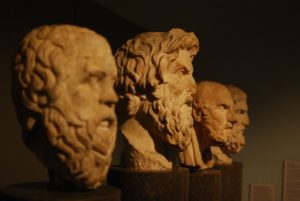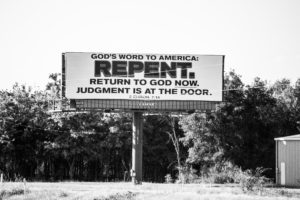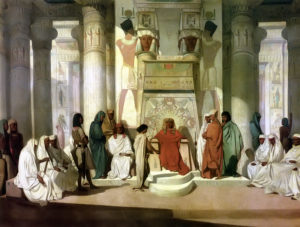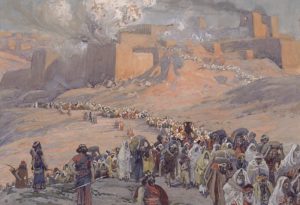FEATURED CONTENT
The Rational Poet: Appealing to the Heart and the Mind in the Book of Judges
The Song of Deborah in the book of Judges demonstrates that Hebrew poetry is an appeal to reason just as much as it is an appeal to emotion.
Is Aristotle’s Ethics Hebraic? A Comparison of Greek and Hebrew Ethics
Though most of the “virtues” in the Bible would have found little welcome in Aristotle’s world of Athens, some of the Bible—its Hebraic tradition especially—contains moral concepts that, in form, can be considered Aristotelian.
Who Is the Steward of Eden? Genesis and Environmental Stewardship
God sustains his creation, but environmental stewardship is the responsibility of humans, who rule over creation in His stead, according to his standards.
What Repentance Really Meant in the Torah—and Why It Matters Today
Repentance in the Torah involved restitution for the wronged, responsibility from and grace for the wrongdoer, and justice within the whole community.
Why Poetic Imagination Is Necessary to Understand Biblical Prophecy
The poetic imagination is that faculty which allows an image to become laden with meaning. We use this faculty to understand biblical prophecy.
Neither Work nor Leisure Provides ‘Our Daily Bread’
God commands both work and rest, but neither of these provides our daily bread. Rather, they teach us to trust God to provide for our needs.
Family Conflicts and the Restoration of the Cosmos, Part II: Kingship and Servanthood within the Elected Family
The Hebraic morals of kingship emerge in the struggle between Joseph and his brothers. This confounding story inverts the typical relationship between ruler and ruled.
Part of the Family Conflicts and the Restoration of the Cosmos series
Living Well and Wisely with God and His People While Coping with Trauma
What do the Scriptures, especially the Hebrew Bible, have to say about the nature of traumatic events, and the lives of survivors coping with trauma? What does living well and wisely—positive coping—look like in the wake of horrific suffering?
Biblical Culture-Making: How Sacred Order Shapes Social Order
Humans construct a social order that reflects or corresponds to some kind of sacred order. The Sinai covenant and the book of Judges illustrate this truth.









